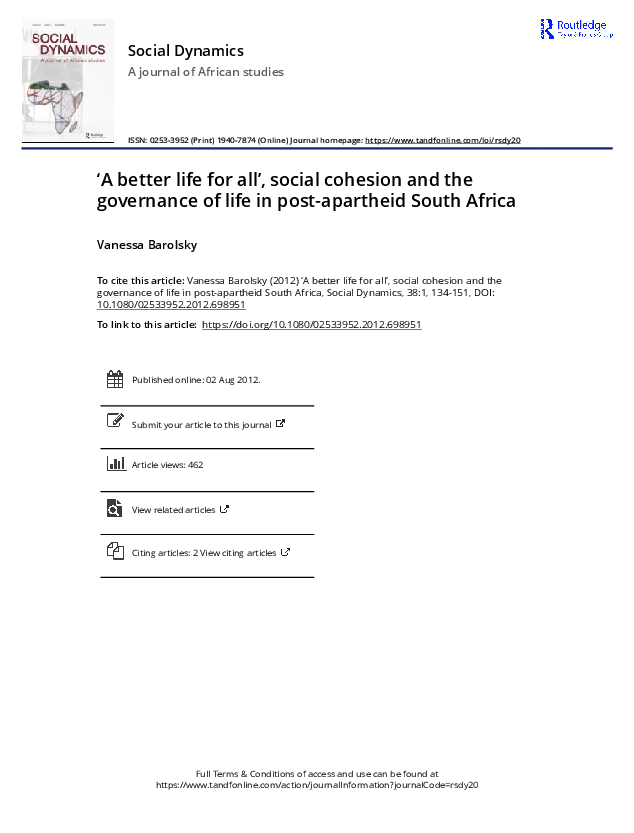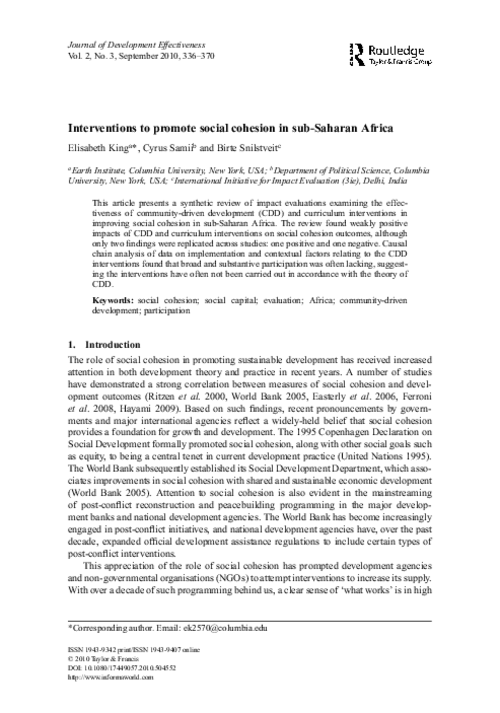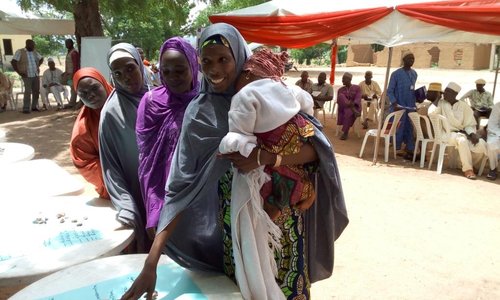A better life for all, Social cohesion and the governance of life in post-apartheid South Africa
Key facts
Cooperation
Development cooperation
Summary
Against the background of rising levels of anxiety around the state of the social
fabric in South African society, this paper explores the disjuncture between the
post-apartheid state’s policy discourse on social cohesion and the local discourses of South African residents in 24 focus groups held in townships around
the country, which reveal significant levels of social fragmentation and intense
contestation regarding the new regime of rights. The paper argues that the state’s
policy discourse on social cohesion is part of an attempt to manage a complex
social environment in terms of a project of developmental nation-state building
that seeks to constitute the social domain as a normative realm of imagined
homogeneity in which citizenship is premised on constitutional values. I argue
that while the state’s concern with the ‘social’ relates to the critical question of
solidarity in modern democracies, this has led, in the South African context, to
the constitution of the social domain as a site of pathology, divorced from the
broader political and economic relations of power in which this ‘pathology’ is
embedded. At issue in this interaction between state and local discourses on the
question of solidarity are the terms of membership in the political community.
Who will and will not be part of the ‘new’ nation?




